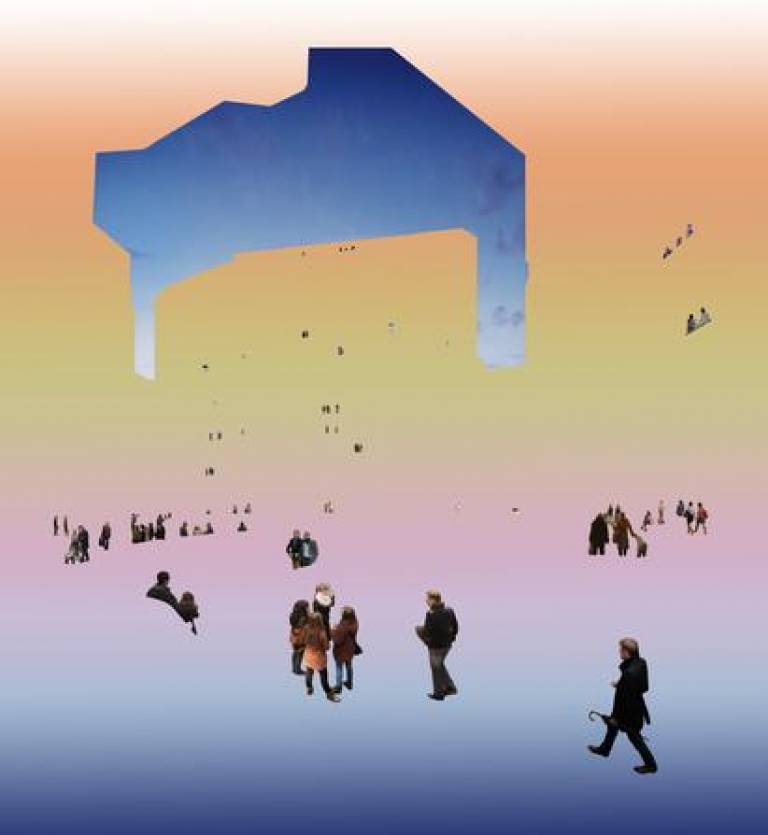Photography and Manipulation: Documenting Virtual Control
26 September 2015, 2:30 pm–3:30 pm

Event Information
Open to
- All
Location
-
The Practice Space, RIBA, 66 Portland Place, London W1B 1AD
On the penultimate day of the Virtual Control exhibition at RIBA, produced by UCL Urban Laboratory, this conversation between the artists Max Colson and Lewis Bush will explore the challenges facing documentary practitioners and visual artists engaged with issues around urban redevelopment, surveillance and the privatisation of public space. Taking the form of a gallery tour, it will use the exhibition as the starting point for a set of discussions examining real and virtual control in cities and the challenges this dichotomy poses to contemporary documentary practices.
Virtual Control - Security and the Urban Imagination is open daily in The Practice Space at RIBA until 27 September.
Max Colson is an artist using photography, animation and graphic design and was artist-in-residence at the UCL Urban Laboratory between (2014-2015), a position funded by the Leverhulme Trust. Virtual Control: Security and the Urban Imagination, is his first solo exhibition and is hosted at the Royal Institute of British Architects (2015). His work has been featured in a broad range of publications across architecture, design and photography, including Icon, Architecture Today and Hotshoe International. He has exhibited in group shows in London (2015), Berlin (2014), and Holland (2015). He was selected as one of the UK winners of the Flash Forward Emerging Photographer competition (2013).
Lewis Bush (London, 1988) studied history at the University of Warwick, and worked in public health before gaining a master's degree in documentary photography from the London College of Communication. He has since gone on to teach photography there and at other institutions in the United Kingdom. At the same time he develops his own personal photography practice, and writes extensively on the medium's history and its contemporary use for a wide range of print and online titles as well maintaining the Disphotic photography blog. He also curated occasional exhibitions and photographs for clients in the heritage, cultural and education sectors.
Limited places are available for this workshop. Tickets are free but require registration
 Close
Close

